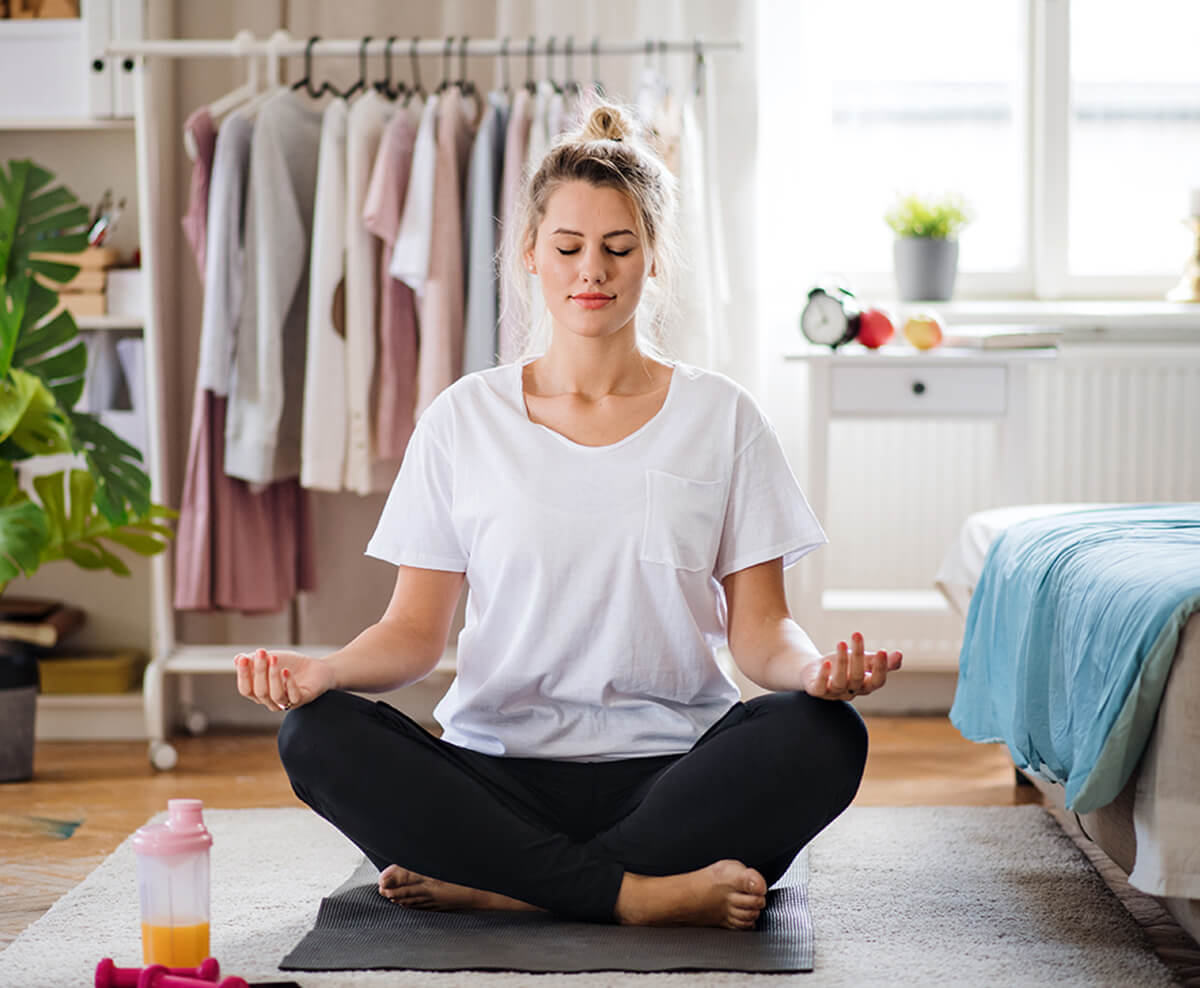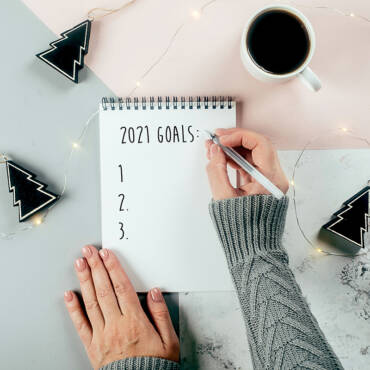Finding Our Way in the Time of COVID-19
Preparing for COVID-19 is like preparing for a hurricane. That’s what I said two weeks ago, when I was still working in an office with clients. The empty streets, bare grocery store shelves and crowded gas lines all reminded me of being a child in Florida, where we prepared for disaster every year. Then when I started working from home last week I compared our State of Colorado’s mandate to stay at home to the endurance needed for a meditation retreat. Being sequestered is tough, but good for me.
Now in the first week of April 2020, the COVID-19 crisis reminds me of walking a labyrinth: it’s disorienting, it’s hard to tell which direction we’ll go next, and it’s taking longer than we thought it would. A lot longer.
No matter what you’re experiencing as a result of COVID-19 and the subsequent quarantine, you probably feel some degree of uncertainty and unpredictability. This lack of predictability can be a precondition for trauma, according to Bessel van der Kolk, a Dutch psychiatrist who has pioneered trauma research and interventions. As a graduate student, I was privileged to hear Dr. van der Kolk speak at a conference where he talked about the healing power of yoga for trauma. His talk inspired me to follow my own dream of integrating yoga and mindfulness into a psychotherapy practice for kids and families.
Just the other day he gave an online talk to therapists and healthcare workers about COVID-19. He listed several Preconditions for Trauma that this time of uncertainty can exacerbate. If we heed the warning signs, we can avert trauma in our own lives. So I started thinking about how his list applies to my clients, as well as me. The following suggestions are my own, based on my experience as a therapist working with kids and families. I am in no way associated with Dr. van der Kolk’s work (other than my admiration of it). With that in mind, here are my recommendations to Dr. van der Kolk’s list of preconditions:
Preconditions for Trauma, and Michelle’s Suggested Remedies
Want action not words? For a quick remedy click here Yoga/Meditation then click the Subscription button and type the promo code Aprilyoga to have access to family yoga & meditation for the month of April.
Lack of Predictability–Create a daily and weekly routine. Whether you’re a child, teen or adult, this is important. Parents of small children will need to take an active role in doing this with your child. Parents of teens–invite your teen to collaborate with you, rather than dictating it to them. Many children have online school for the rest of the year. One mom I work with told me she helped her school aged child develop a daily routine with a balance of school work, physical activity, screen time and a small reward for each day her kiddo follows the schedule.
What I’m Doing: I start my day with yoga and meditation before making my breakfast. I’ve also started taking vitamins with a liquid immune booster. I feel better just knowing I’ve been proactive in my own health.
Immobility–Trauma can have an immobilizing effect on the body and mind. So it’s important to move. While the obvious remedy is exercise, it’s not the only option. I work with teens whose form of “movement” is making art, playing an instrument or singing, or even working on their car.
What I’m Doing: yoga is my obvious go-to, but I also cycle and walk the dogs more these days. I’m also looking forward to yard work like I never have before!
Loss of Connection–Many of us are FaceTiming and video chatting regularly with friends and family. You can add more structured virtual hang-outs like Netflix party, virtual workout dates or online music concerts with friends. Clients have told me they’ve been going for hikes or walks in the parks with friends by taking separate cars and keeping 6 feet distance.
What I’m Doing: I’m spending more time with my family, neighbors and dogs, and I send my friends goofy animal videos. And like most of us, my family now sits down for homemade dinners together every night—sharing a meal is a key way to create connection.
Numbing/Spacing Out–It’s tempting to numb out with electronic devices or alcohol and drugs. While indulging in these things can relieve your stress level short term, practice them in moderation. Also try yoga, tai chi, mindfulness exercises or simply talking to a friend to stay engaged. Talk to supportive others about how you’re doing. If you are having more meals together with your family, try the practice of telling each member of your family three things you appreciate about them—make it a weekly practice for the whole family.
What I’m Doing: I’ve re-upped my daily meditation practice. Even after 20+ years of practice, I’m amazed at how meditation grounds me in the present and helps me let go of stress and sadness.
Loss of Sense of Time & Sequences–In times of uncertainty, we can lose track of time. How many times in the past few weeks have you asked, “What day is it?” Try taking five deep even breaths every day first thing in the morning to increase awareness of how you’re doing. Many of my clients have now heard me preach about Touch and Go: Touch into the feeling you’re having (anger, sadness, boredom, irritation, sleepiness) and then figure out what you want to do about it. Resist the urge to say “I shouldn’t feel this way! It’s not that bad.” No. Pay attention to how you feel, and then use an activity to transform uncomfortable feelings.
What I’m Doing: My yoga and meditation practice help me so much. Even if I only get 10 minutes in a day, I want to be aware of how I’m feeling and what I need before I try to support others in their journey.
Loss of Safety–Find a balance between engaging in healthy physical touch with others who are already in your household (that includes pets) and getting space. COVID-19 can make us scared of others, but human touch with those who are well and with who we live helps. Give hugs, and cuddle. But we also need space when we’re in close quarters. Teens especially need LOTS of alone time. If you live in small quarters, choose different items of furniture that–at agreed-upon times when you retreat to them–no one can bug you.
What I’m Doing: I can’t tell you how happy I am to have two snuggle bug dogs! I’m also grateful for our finished basement where I can do my yoga and meditation practice without disturbance.
Loss of Sense of Purpose–It’s so important to remember that this will end. Even though we don’t know when or how, it will. Even the Spanish Flu of 1918 ended. Can you imagine what it must have been like? It must’ve felt like forever. But it wasn’t. Find short term and long term milestones to look forward to. Plan at least one small event each week to look forward to. Sign up for an online seminar. Chart a course to get a degree.
What I’m Doing: I’ve spent the past two weeks taking a course to become a telehealth therapist. It felt really great to get that certificate last night!
Whatever your experience of the COVID-19 crisis, be kind to yourself and those around you. Maybe you’re not even sure how to feel. That’s ok. Give yourself the time and space to figure it out. And give others space—the people closest to you may be having very different reactions than you. By practicing some of the skills above you can make room for that too.
Lastly, don’t be afraid to ask for help. Call 1-800-799-SAFE or check out their website at https://www.thehotline.org/help/ for support. Also, for quick relief join me for short yoga and meditation videos & audio practices. Just click Yoga/Meditation, then click the Subscription button and type the promo code Aprilyoga to have access to family yoga & meditation for the month of April.



